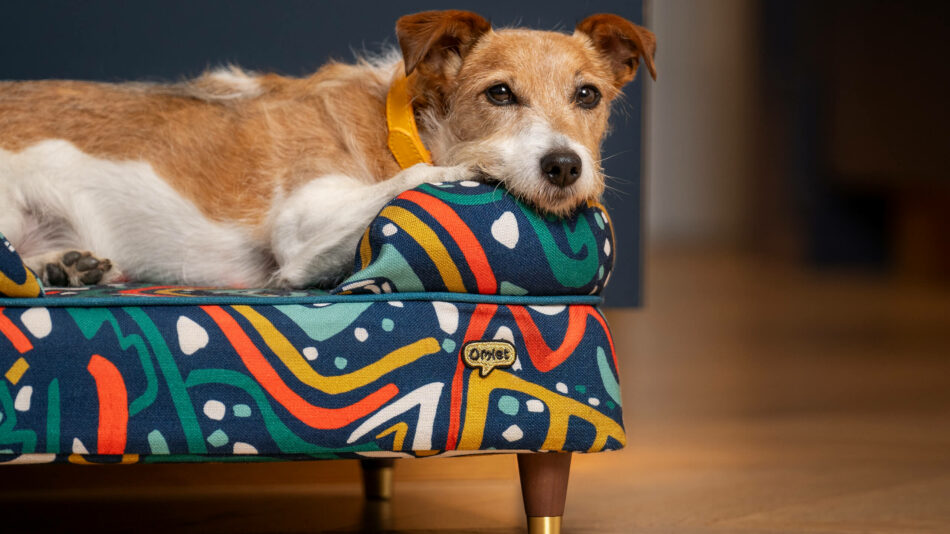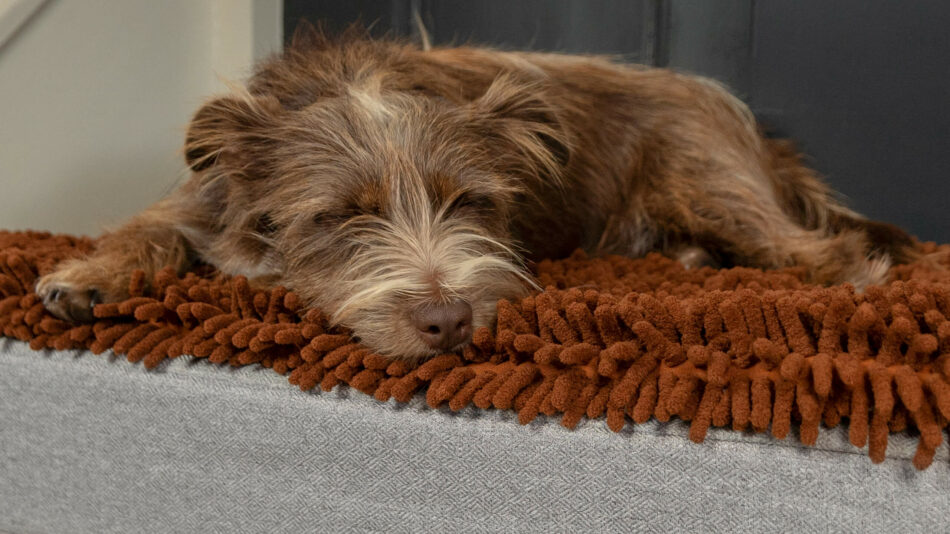Things you should know when rescuing a dog
Rescuing a dog can be a truly rewarding experience. Not only will you receive a loving companion in the process, but this selfless act gives a deserving animal a new lease on life. Like any big commitment, it’s important to be prepared for the journey ahead. Whether you’re a first-time dog owner or an experienced pet parent, here’s things you should know when rescuing a dog, along with tips and products to make the transition as smooth as possible.
Assess your home and lifestyle
Bringing a rescue dog into your home is an exciting and rewarding experience, but it’s crucial to assess your environment and lifestyle to ensure a smooth transition for both you and your new four-legged friend. Start by evaluating your home’s physical design. Consider the size of your living space and whether you have a yard, patio, or nearby park for exercise. Depending on what dog breed you decide to rescue, your new furry friend may have different needs to consider.
If you live in an apartment or a rental property, be sure to check the pet policies to avoid any surprises. Additionally, think about the layout of your home—are there stairs, open balconies, or other areas that might be unsafe for a curious dog? It’s also a good idea to identify in advance the places where your new dog can sleep on their dog bed, eat in comfort, and have a secluded space where they can retreat in peace.
Beyond the physical setup, reflect on your daily routine and social commitments. Do you work long hours, travel frequently, or have an active social life? Consider how much time you can dedicate to your dog’s needs, including feeding, exercise, and training. If you’re not home often, who will care for your dog, and what arrangements need to be made? Think about your social network—do you have friends or family who can help with dog-sitting in a pinch?
And finally, consider your family’s dynamics and whether everyone is on board with the responsibilities that come with adopting a dog. By assessing both your home and lifestyle, you can ensure you’re creating a welcoming environment for your rescue dog and setting yourself up for a successful adoption experience.
Preparing your home for your new friend
Once you’ve decided to rescue a dog, it’s time to prepare your home for their arrival. Dogs thrive in environments where they feel safe and secure. A great way to provide this is by investing in high-quality dog products that will give your new furry friend comfort and longevity.
- Dog crate: Not only does a dog crate serve as a useful training tool, but it can double as a safe and comfortable hideaway where your rescue dog can rest with ease. The Fido Nook Dog House, designed by Omlet, is a perfect choice for rescue dogs as its sleek, modern design makes it feel more like furniture than a crate. The luxury inspired design not only creates a warm and inviting environment for your dog, but looks good in your home as well.
- Dog bed: In addition to a crate, a comfortable dog bed is a must-have product for your new pup. If you’re rescuing an older dog, opt for orthopedic options to support their joints, like the Bolster dog bed from Omlet. For younger dogs, look for durable beds that can withstand their energy and occasional messes, like Omlet’s easy-to-clean Topology dog bed.
- Leash and collar: An essential part of being a dog owner is making sure your rescue dog gets exercise. So invest in a durable dog collar and leash that you can use on walks around the block, trips to the dog park, or even the occasional road trip. The Omlet designer dog collars and leashes allow you to match your dog’s personality to their wears, which adds flair and inspiration to your time together.
- Dog toys: No matter what age, breed, or size of your rescue, all dogs like to play with toys. So be sure to have plenty of interactive dog toys on hand for your new friend to play with and stay mentally stimulated. Set aside time each day to play with your dog as this will help to quickly strengthen the bond between the two of you.
Building trust and boundaries
Bringing a rescue dog into your life is like starting a new chapter with an old friend. The key to building trust is patience and consistency. Rescue dogs often come with a history of uncertainty, so it’s important to give them time to adjust. Start by establishing a routine that helps them understand what to expect from day to day. Feeding them at the same time, taking regular walks, and creating a designated sleeping area can help create a sense of stability. As they start to relax, you’ll notice their unique personality traits and preferences.
Along with building trust, establishing boundaries is just as crucial and its success is in finding the right balance. Dogs feel more secure when they know what is and isn’t allowed. But remember, this isn’t about strict discipline—it’s about guiding them with kindness. Use positive reinforcement to teach them acceptable behaviors, like sitting before crossing the street or not jumping on guests. If they’re not allowed on the couch, redirect them to their bed with a toy or treat. By creating clear, consistent boundaries, you’re not only guiding your dog but also showing them that you care enough to keep them safe.
Introducing family and pets
When it comes to introducing your rescue dog to family members and other pets, planning and patience is key. Start by having a designated space for your new dog where they can feel secure and get used to their surroundings without feeling overwhelmed. This could be a room or a quiet corner with their bed, toys, and food. When introducing them to family members, keep things low-key and avoid crowding the dog. Allow them to approach people at their own pace, and use dog treats to create positive associations with new faces.
If you have other pets, a gradual introduction is crucial. Start by letting them sniff each other’s scent through a closed door or baby gate. This helps both pets get used to the idea of a new companion without direct interaction. After a day or two, you can progress to short, supervised meetings in a neutral area, like the backyard or a spacious living room. Keep the interactions brief and positive, with plenty of treats and praise and watch for signs of stress or aggression. Over time, with patience and positive reinforcement, your rescue dog will start to feel like part of the family, and your other pets will adjust to the new addition. Remember, every dog is different, so take things at a pace that feels comfortable for everyone involved.
Omlet and your dog
At Omlet, we understand that bringing a rescue dog into your life is a transformative experience filled with joy and immeasurable rewards. Our design philosophy is all about asking the right questions that help to better the connection between pet and person. That’s why our products are designed with both you and your dog in mind, offering smart solutions that make your journey together even more enjoyable. From cozy dog beds to innovative dog crates, our goal is to help you create a home where your rescue dog can thrive. So as you embark on this wonderful adventure, let Omlet be your partner in building a world where you and your furry friend can create memories that last a lifetime.
This entry was posted in Dogs


